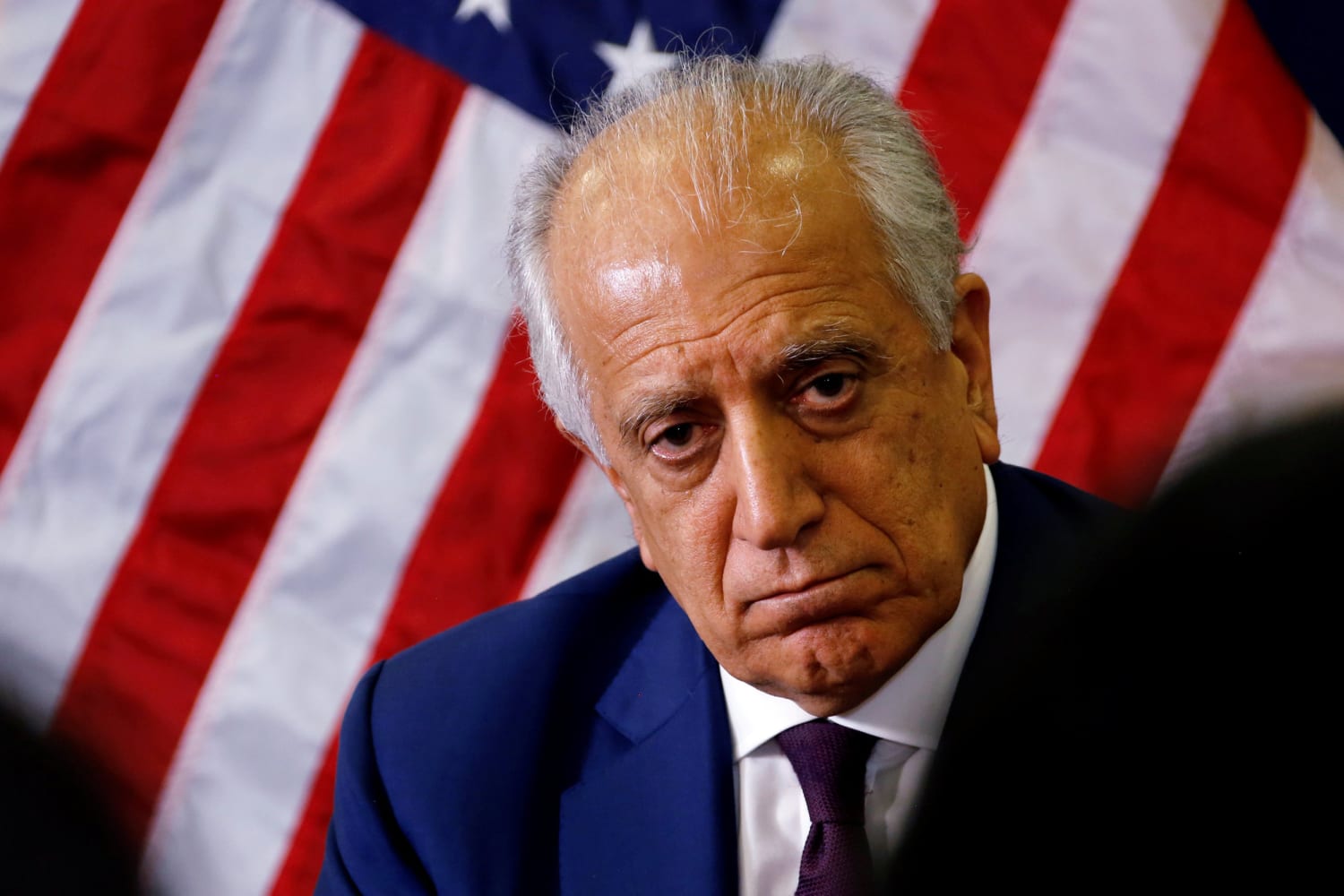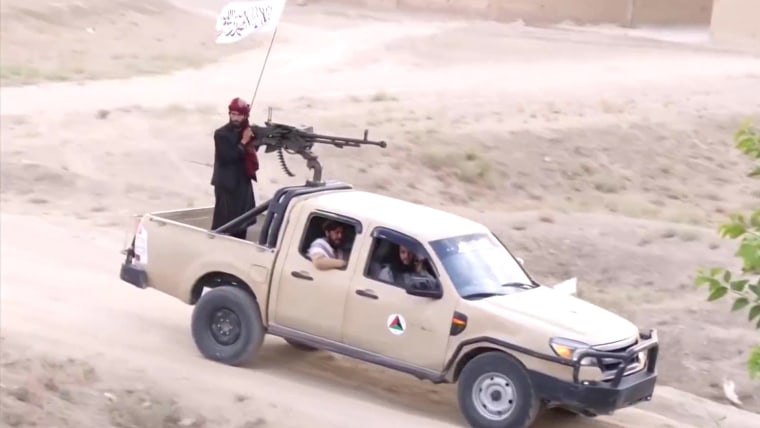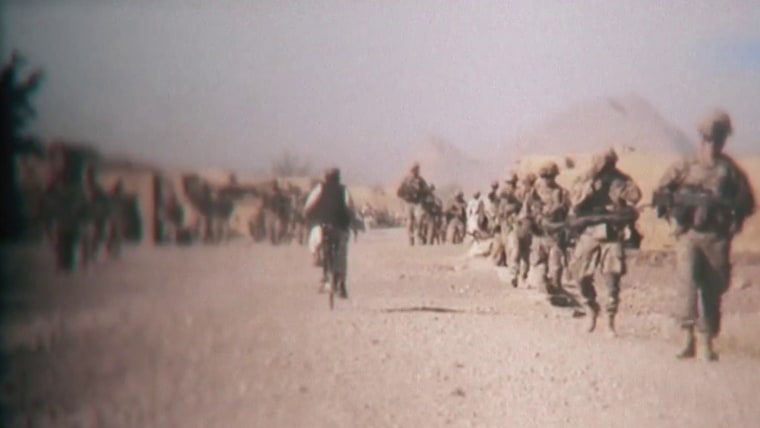A year and a half since U.S. special envoy Zalmay Khalilzad brokered a “peace agreement” between the United States and Taliban leaders, there is no peace in Afghanistan.
Instead of negotiating a power-sharing deal with the Afghan government, the Taliban have unleashed a military onslaught to take power by force, seizing on the withdrawal of U.S. troops as their moment of opportunity.
As Afghanistan plunged into chaos in recent days, with civilians flooding into the capital Kabul to escape the advancing Taliban, Khalilzad made a last-ditch bid to try to stop the bloodletting.
But as he conferred with diplomats from Russia, China and other world powers in Doha this week, the Taliban seized more territory and overran the cities of Herat in the west and Kandahar in the south. In Washington, the Pentagon announced plans to deploy 3,000 troops to Kabul airport to oversee the evacuation of dozens of staff from the U.S. Embassy.
Although Khalilzad has said repeatedly there is no military solution to the conflict, the Taliban have concluded otherwise.
“For Taliban military commanders in the field, they sense victory and they’re going for it,” said Andrew Wilder, vice president of Asia programs at the U.S. Institute for Peace think tank.
The Taliban see no need to compromise or negotiate until “they have either achieved decisive dominance on the battlefield or determined somehow that they’ve gone as far as they can go, ” said Laurel Miller, a former diplomat and now director of the Asia program at the International Crisis Group think tank.
Khalilzad maintains the United States still has leverage over the Taliban because the insurgency wants international recognition, and that Washington and other major powers will insist that any future government upholds democratic rule and fundamental rights.
“The Taliban wants to be recognized. They say they do not want to be a pariah state,” Khalilzad said last week at the Aspen Security Forum. He added: “They have their own reasons to seek normalcy with the rest of the world. Are they going to do what it takes? That’s where the leverage comes in.”
At the talks in Doha, officials issued a statement urging an end to attacks on cities and “reiterated that they will not recognize any government in Afghanistan that is imposed through the use of military force.”
But as the Taliban’s military campaign builds momentum, some foreign governments may choose to accept the new reality on the ground and reach their own separate accommodation with the group, experts and former U.S. officials said.
Taliban delegations recently paid visits to Russia, China and Iran, where they were given respectful receptions from senior officials.
After holding talks with the Taliban on July 28, Chinese Foreign Minister Wang Yi said the insurgents are “a pivotal military and political force” and secured a promise that the group would not allow Afghan territory to be used as a base for attacks on China, the foreign affairs ministry said in a statement.
Until recently, the Afghan-born Khalilzad has struck a relentlessly optimistic tone as envoy, though he was often vague about details, including how the Taliban would be held to account.
“It’s clear all sides want to end the war. Despite ups and downs, we kept things on track and made real strides,” Khalilzad tweeted after one negotiating session in March 2019.
At a congressional hearing in May, when lawmakers expressed alarm at the Taliban’s military push, Khalilzad said forecasts that the insurgency would quickly defeat Afghan security forces and take the capital Kabul were too pessimistic.
“I personally believe that the statements that their forces will disintegrate and the Talibs will take over in short order are mistaken,” Khalilzad told the House Foreign Affairs Committee.
After a round of discussions with the Taliban and the Afghan government earlier this month, Khalilzad tweeted: “There is more that unites than divides the parties.”
But now, with even the capital city of Kabul under threat, some people inside Afghanistan have turned their ire on Khalilzad and his diplomatic efforts.
At a makeshift camp in Kabul for families fleeing the Taliban this week, people expressed fury at Khalilzad in interviews with an NBC News team.
‘A day for hope’
No U.S. official has spent as much time face-to-face with the Taliban as Khalilzad, a former ambassador to Afghanistan who assumed the role two years after the Sept. 11 attacks.
In more than a year of talks, including late-night sessions in Doha hotel rooms, Khalilzad prodded Taliban representatives to sit down for negotiations with the Afghan government. In the end, they agreed, but only after Washington pledged to pull out all of its troops and contractors by the spring of 2021.
In February 2020, Khalilzad smiled and shook hands with his Taliban counterpart at a televised signing ceremony in Doha, saying: “Today is a day for hope.”
The deal he brokered, and that President Donald Trump and then Secretary of State Mike Pompeo fully endorsed, committed the United States to withdrawing all its troops in return for a pledge from the Taliban to enter into peace talks with the Afghan government and to guarantee Afghanistan would not be used as a launching pad for terrorist attacks.
The peace talks went nowhere, Trump began pulling out troops ahead of schedule and — according to the United Nations — the Taliban have retained close ties to Al-Qaeda. But President Joe Biden, who had promised to pull U.S. troops out of Afghanistan as a candidate, chose to press ahead with the agreement, announcing a troop withdrawal in April.
Previous administrations had tried and failed for years to get peace talks started with the Taliban, as the insurgents refused to allow the Afghan government a seat at the table. But the Trump White House dropped that condition, and Khalilzad had a free hand to talk to the Taliban without any Afghan government officials present.
The Taliban wanted a guaranteed timeline for when U.S. troops would withdraw. Washington wanted a ceasefire and a peace process. Khalilzad was under pressure to move fast, as Trump made no secret of his desire to pull troops out unilaterally, with or without any peace deal.
Khalilzad developed a rapport with his Taliban counterparts, but the Afghan government in Kabul was skeptical of the talks. Afghan President Ashraf Ghani’s national security adviser accused Khalilzad in 2019 of selling out the Afghan government in the talks while lending the Taliban a veneer of credibility.
Former U.S. and Western officials say Khalilzad was given a nearly impossible task. President Trump undermined his envoy’s efforts by repeatedly reducing the U.S. troop presence without concessions from the Taliban, signaling to the insurgents they could drive a hard bargain, they said.
Given the circumstances, and the desire of three successive presidents to pull up stakes, could another envoy have done any better?
“I think Ambassador Khalilzad was dealt a poor hand,” Wilder said. “I personally would not the blame all of this on Zal.”
Both Khalilzad and the State Department declined to comment.
A senior administration official said the U.S.-Taliban agreement was “problematic” and severely limited the Biden administration’s options.
“That’s what we inherited coming into office,” the official told NBC News.
The Taliban had refrained from targeting U.S. troops on condition Washington kept its word to pull the troops. If the administration had decided to keep troops in place indefinitely, “they would have had targets on their backs,” the official said.
It was “folly” to think keeping a small contingent of U.S. troops on the ground could fundamentally alter the course of the war, the official said, adding: “The idea that 2,500 troops could be a game-changer is not realistic.”
As Khalilzad portrayed it, the U.S.-Taliban agreement was supposed to launch both a gradual withdrawal of American troops and simultaneous peace negotiations between the insurgents and the Afghan government. The withdrawal, Khalilzad said frequently, would be “conditions based.”
He said the deal was not a withdrawal agreement but “a peace agreement that enables withdrawal.”
Some experts and former diplomats say the time to have pushed for peace was years ago, when the U.S. had maximum leverage, right after American-led forces toppled the Taliban in 2001. Or when the U.S. had 100,000 troops on the ground during President Obama’s troop surge more than 10 years ago.
But once the U.S. promised the Taliban to pull out American troops by a fixed deadline, without any binding commitment from the Taliban to reach a peace accord with the Afghan government, the chances for a negotiated end to the war began to unravel, experts said.
“As soon as the U.S. went down the road of making that concession to the Taliban, there was no more than a narrow window of opportunity to get a real peace process launched,” said Miller of ICG. “The window was already closing when Biden took office, and then the decision to withdraw quickly sucked all the oxygen out of peace efforts.”
The Taliban got the agreement they wanted, Miller said. And, she said, “there’s nothing surprising about what’s happened.”
Source: | This article originally belongs to Nbcnews.com












